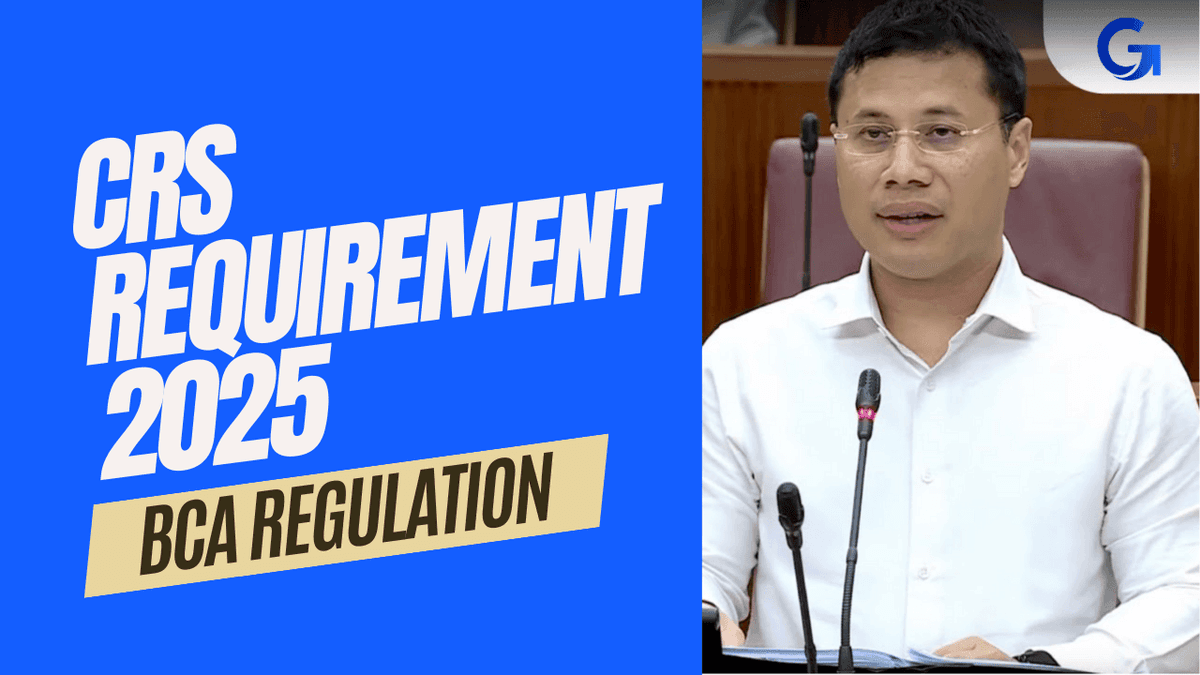2025 CRS Requirements: A Must-Know for BCA Registered Contractors
Discover 2025 BCA CRS updates for contractors, covering foreign worker hiring and tendering limits. Stay compliant and adapt to new regulations effectively.
by Sam Chen
|
Singapore’s construction industry is changing, and the Building and Construction Authority (BCA) is updating its Contractors Registration System (CRS). Starting June 1, 2025, these changes will affect how construction firms operate, especially those hiring foreign workers. If you’re a BCA registered contractor or planning to become one, it’s important to understand these updates. This blog explains the key changes, their impact, and why being a BCA registered contractor matters more than ever.
What is the BCA Contractors Registration System (CRS)?
The CRS is a system managed by the BCA that requires firms working on public sector construction projects to register. This includes main contractors and first-level subcontractors. Contractors can register under different categories, like Construction Workhead (CW), Construction Related Workheads (CR), Mechanical Electrical (ME), Trade Heads (TR) and Regulatory Workheads (RW)
Each category has financial grades that decide your BCA tendering limit for public projects. Before 2025, the CRS mainly focused on government projects. But starting in 2025, it will also include private sector projects and firms hiring foreign workers. This makes the BCA CRS the main system for all construction firms in Singapore.
Key Changes to the BCA CRS in 2025
Here’s what’s changing and what it means for you as a BCA registered contractor:
1. Mandatory Registration for Hiring Foreign Workers
From June 2025, all firms hiring foreign workers under S Pass or Work Permit schemes must register under the BCA CRS. This replaces older systems like the Builders Licensing Scheme (BLS).
2. Higher Minimum Paid-Up Capital
Contractors must now have at least $50,000 in paid-up capital (PUC). This ensures firms are financially stable and responsible.
3. Stronger Track Record Requirements
To qualify as a BCA registered contractor, firms must show they’ve completed projects worth $300,000 in the last three years. This ensures only experienced contractors can register.
4. Same Rules for Public and Private Projects
The CRS will now have the same standards for all contractors, whether they work on public or private sector projects. This improves quality and accountability.
5. More Detailed Documents Needed
Contractors must submit detailed documents, like audited financial statements, proof of paid-up capital, and information about technical personnel with the right qualifications. Certifications like ISO45001, bizSAFE, or Green & Gracious Builders Scheme (GGBS) are also required.
How to Register Under the BCA CRS
Becoming a BCA registered contractor is simple but requires preparation. Here’s what you need:
1. Financial Statements
Show proof of your paid-up capital with audited accounts and net worth details.
2. Track Record
Provide documents of completed projects, approved by clients, to show your experience.
3. Technical Personnel
Include details of full-time employees with the right technical qualifications and valid licenses.
4. Management Certifications
Show your firm’s commitment to quality and safety with certifications like GGBS, ISO45001, or bizSAFE.
Once your documents are ready, submit your application online through the Electronic Builders Licensing and Companies Registration Systems (eBACS). After approval, your company will be listed on the BCA registry, a trusted platform for licensed builders and construction suppliers.
According to a BCA spokesperson, around 11,000 firms are already registered under the CRS. With the new requirements, an additional 7,000 firms are expected to join.
Why Being a BCA Registered Contractor is Important
Becoming a BCA registered contractor is now essential for:
1. Access to Public Projects
Registration under the BCA CRS is required to bid on public sector construction tenders. Your financial grade and category decide your BCA tendering limit.
2. Hiring Foreign Workers
From 2025, only BCA registered contractors can hire foreign workers under S Pass or Work Permit schemes.
3. Better Credibility
Being listed in the BCA registry shows clients and partners that your firm meets high standards.
4. Following Industry Rules
The updated BCA CRS ensures all contractors follow the same standards, improving quality and safety in Singapore’s construction industry.
What the CRS Changes Mean for Contractors
The changes bring both challenges and opportunities:
1. Higher Costs
Meeting the new requirements, like higher paid-up capital and stronger track records, may increase costs. Firms also need to invest in certifications and documents.
2. More Competition
With the same rules for everyone, competition will increase. Firms with strong finances and experience will have an advantage.
3. Risk of Penalties
If you don’t follow the rules, you could face fines or be removed from the BCA registry.
4. Chance to Grow
The updated BCA CRS aims to improve the construction industry, giving firms that meet the new standards more opportunities.
Tips for Meeting the New BCA CRS Requirements
Here’s how to prepare for the changes:
1. Check Your Finances
Make sure your firm meets the minimum paid-up capital and track record requirements. Adjust your finances if needed.
2. Get Certifications
Certifications like bizSAFE, ISO45001, or GGBS will strengthen your application and show you follow the rules.
3. Organize Your Documents
Prepare all required documents, like financial statements, project records, and details of technical personnel.
4. Use Technology
Use construction management software to manage compliance, workforce data, and project records more easily.
5. Stay Informed
Keep up with updates from the Building and Construction Authority (BCA) for any new changes.
Conclusion
The updated BCA Contractors Registration System (CRS) is a big step for Singapore’s construction industry. By setting higher standards for financial stability, experience, and accountability, the new system ensures only qualified firms can work on construction projects.
For contractors, becoming a BCA registered contractor is now essential for bidding on public projects, hiring foreign workers, and staying competitive. While meeting the new requirements may take effort, the benefits—better credibility, more opportunities, and following industry rules—are worth it. Start preparing now to secure your place in the BCA registry and stay ahead in Singapore’s construction industry.